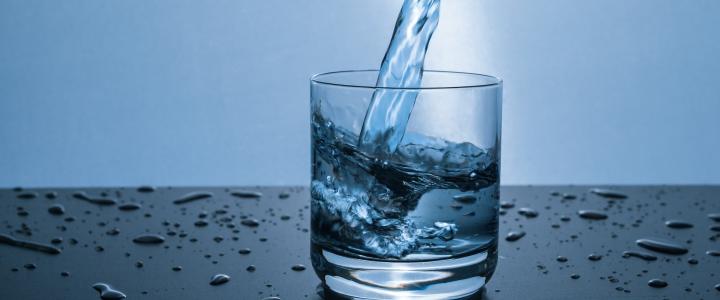
February 2022: Well, It Might Be Time to Test Your Water
Do you know what’s in your drinking water? If your water comes from a public water system – typically city or town water – then you can rest assured that someone does, and that they are keeping an eye on it for you. Public water systems are required to monitor and regularly test their water for harmful contaminants under the Safe Drinking Water Act. If your drinking water comes from a private well, however, finding out what’s in your water is up to you – and it’s important for the health of you and your family that you do.
Nearly half of the Granite State population – about 46% or 520,000 people – rely on private drinking water wells, which have no uniform testing or treatment requirements. Yes, you likely had the water tested when you bought your home, but that would have been a requirement of the mortgage lender (and a handful of cities and towns), not the state. And because well conditions or groundwater conditions can shift over time, it is recommended that you test on a regular basis. Making it a scheduled part of your home maintenance, much like getting your septic tank pumped regularly, is a great way to ensure you aren’t missing any potential health hazards in your home.
Why test? Because some contaminants in drinking water have been linked to cancer and toxicity, posing a risk to human health, and many often have no taste, odor or color. Their presence can only be determined by laboratory testing. NHDES recommends that you test every three to five years for a number of contaminants. Some are naturally occurring in soil and rock, such as bacteria, arsenic, radon and uranium; others find their way onto the land from human activities, such as improper waste disposal, road salting and fuel spills.
THE TESTS
It is recommended that you have the following tests done every three to five years:
- Standard analysis: Covers the most common contaminants: arsenic, bacteria, chloride, copper, fluoride, hardness, iron, lead, manganese, nitrate/nitrite, pH, sodium, uranium. (NHDES recommends bacteria and nitrate be tested annually.)
- Radiological analysis: New Hampshire’s geology contains naturally occurring radioactive elements that dissolve easily in well water. A basic radiological analysis will test for uranium, analytical gross alpha and radon gas.
- Per- and Polyfluoroalkyl Substances (PFAS): PFAS have been found in a significant percentage of private wells in New Hampshire. NHDES revised its private well testing recommendations in 2019 to include PFAS.
- Volatile organic compounds (VOCs): The most common VOCs come from gasoline compounds (such as MtBE and benzene) and industrial solvents. MtBE can be found in well water even in remote areas.
It is not necessary to do all of the tests at one time; you may want to stagger them, so they come due during different years. Other times to test your water is if your well flooded; if you notice a change in the color, taste or smell of your water; or after well construction activities or repairs.
You can find more detailed information about water testing on the NHDES private well webpage and find a lab to conduct the tests in this list of accredited labs. Collecting your water sample is an important part of the process, and you can request test containers from the New Hampshire Public Health Lab in Concord through this online form.
THE RESULTS
Knowing your results is a good first step to reducing exposures in your daily environment. Your lab results will tell you the levels of the various contaminants found in your water. The mere presence of these contaminants in well water does not necessarily imply that there is a problem, but if they exceed state or federal health standards, you should look into treatment. There is a web tool that can help: Be Well Informed. This site provides an interpretation of lab results in terms of water quality standards, provides treatment guidance concerning treatment technologies, and provides information on health and home appliance impacts. You can even print out a pdf report and use it when talking to a treatment company.
Still have questions about drinking water and your health? The NHDES Environmental Health Program can also provide support for understanding the health risks from exposure to contaminated drinking water and recommend treatment options based on your needs. NHDES is also a partner in the New Hampshire APPLETREE Program, which works with communities to reduce exposure to environmental hazards, such as contaminated drinking water, and the team is available to support communities when petitioned.
If you’ve been relying on a water test result from when you moved into your home last decade, it’s time to check it again! You can be an informed consumer of your own drinking water resource to protect yourself and your family. For more detailed information about testing, see DWGB-2-1: “Suggested Water Quality Testing for Private Wells.”




